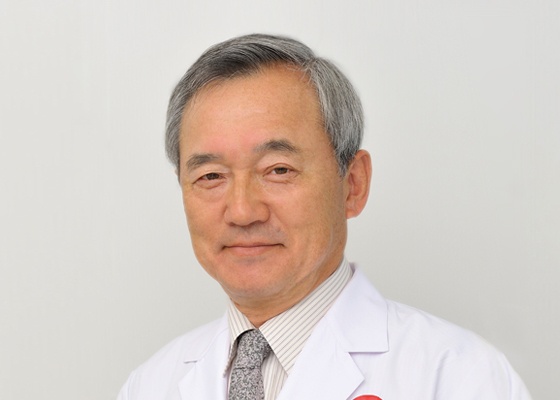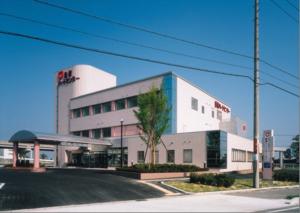In this part, Dr. Suzuki discusses the key differences between American and Japanese markets, and reflects on a defining moment in his career.
Profile: Dr. Takahiko Suzuki (Part 4)

What are your expectations for the next generation?

Right now, the first generation of cardiologists like us are still going strong, but the time has come for young cardiologists to step up to the plate. We've been performing PCI since the days when devices were terrible, so we've been able to adapt easily in this era where new devices are abundant. What I would like to say to the key doctors of the future is that they should never think they're perfect just because they're able to use the most current devices. In every era, as technology improves, the limitations of devices become apparent, and I would want them to develop a mindset that allows them to adapt once they hit those limits. I would like them to face any obstacles they encounter head-on and cultivate the desire to overcome them. In an ideal world, we would have cardiologists who could always calmly handle the situation when faced with an unexpected event even after facing a coronary artery perforation during catheterization. However, such a cardiologist is rare. But the important thing is to please not run away from these kinds of situations. Make sure to take responsibility for your patients until the end. I've decided that if the time ever comes where I feel like running away because a patient experiences a coronary perforation during my practice, that is when I'll retire for good.
For my 250th PCI, I had to treat my friend's father. I still remember those days vividly. After ballooning 99% of the stenosis, a dissection occurred. Normally, I would use a perfusion balloon to bailout from dissection, but even after two long inflations, things did not look good. On the opinion of my second cardiologist, I immediately consulted a surgeon and asked him to conduct an emergency surgery. I remember wanting to escape from this situation. This was the first time I sent one of my patients to a surgeon and I deeply regretted that my feelings at the time might have been the cause of such a disappointing end result. From that moment on, I made up my mind that I would never run away from any of my patients, and that I should take responsibility and care for them until the end. Unless the surgeon decides it's appropriate, I must never send the patient elsewhere just because I am scared. This was the most shameful incident in my years as an interventionist, and I will never forget it.

The medical device field, especially in the interventional field, seems to be a market dominated by American companies. Are you expecting anything from Japanese companies?
In the field of medical devices, Japan lags behind the rest of the world in development and production, and I feel very sad about this. However, where we are not lagging behind the U.S. is in PCI technology. I believe that Japanese cardiologists are definitely superior to their American counterparts, and in Japan, there are more than 1,000 centers currently performing PCI. Unlike pharmaceuticals, cardiologists play a major role in the development of PCI devices, so if each cardiologist has the desire to create a product, and if the companies also support this, Japan can compete with the rest of the world. In this field, it is necessary to create an environment where the ideas of cardiologists and engineers can be combined to develop new products. To this end, I hope that cardiologists will continue to conduct PCI and come up with ideas from this perspective, and that companies will not too hastily refuse to commercialize ideas coming from the field just because they're deemed not profitable. There is too much of a tendency for Japanese companies to look at the current market and only develop short-term products. I would rather see them take on the world with the intention of creating a new market.
Another important issue is that there are too many regulations in the medical device field in Japan. The government needs to create a more conducive environment for Japanese companies. The atmosphere in the industry itself is not welcoming to start-ups. Originally, Japan did not have the soil to nurture venture companies. One of the main reasons for this is that in this industry, there are none of the so-called angels ready to invest like there are in the United States. Upon a failure in the U.S., not everything is nipped in the bud. Instead, it's an environment where failures are permitted and new companies may be born again. Unless we create a similar environment in Japan, any good ideas born will all move to the U.S.
We are no longer in an era where we can compete with the rest of the world by making excellent balloons domestically. The balloon market has matured to the point where it has reached an impasse, and we are now in a price war among companies. Production in Japan is too costly when it comes to providing excellent products at low prices, and we cannot compete with Western companies that have moved their factories to places like China or South America. Even if you make the best balloon in the world, you cannot compete unless you also make it at the lowest price in the world. Because of this, I think Japanese companies should aim for other markets. Starting with balloons is a good step to take, but it’s not enough to survive in the current market. I would like Japanese companies to pay more attention to the world and keep Japan on the map by sending out new, domestically-made products.
Interviewed in 2006
ご注意 当サイト内の全ての記事と動画の転載・転送はご遠慮ください。なお、法律上保護されたコンテンツの無許可の転載、複製、転用等は、当該コンテンツの権利者等から損害賠償請求その他の法的手続を申し立てられ、事案によっては処罰される可能性、また、故意にそれらを受け取った場合も同様の措置を受ける可能性がございます。ご不明な点がございましたら当社までご連絡ください。




